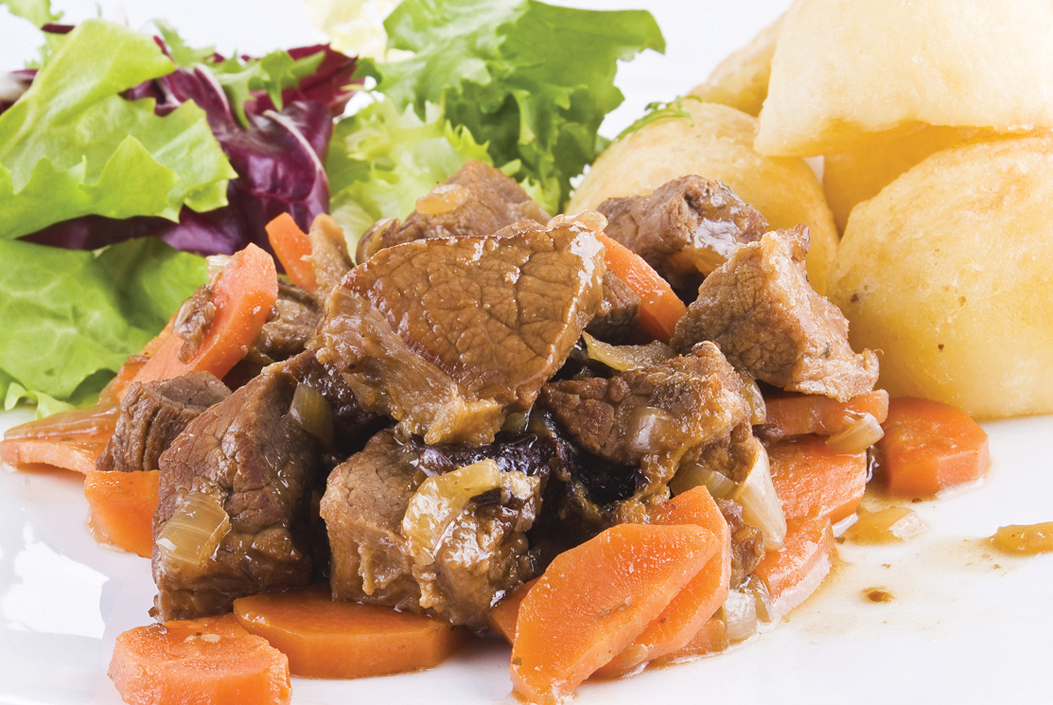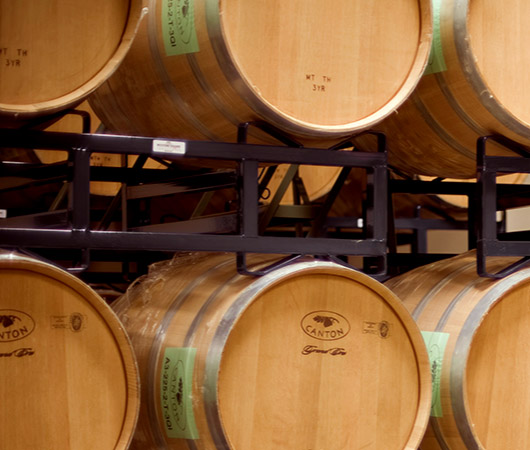Braised Beef in the Roman Style (serves 4)

This is a dish from antiquity, a hearty meal perfect for a hearty wine like Petite Sirah. We have modernized it to include readily available ingredients like celery and carrots, but have left the Roman tradition of cloves and bay laurel. (To make it more authentic, substitute pork for beef, and use colored carrots – red, yellows and purples!). Use some of the Petite in the braising liquid, and the rest to enjoy with the meal. As an added bonus, we have included Mrs. K’s mashed potato recipe on our website (under News, then Recipes) – just ladle some of the meat and juices over the potatoes for a complete meal. Pairs beautifully with Occasio Petite Sirah.
Ingredients:
Olive Oil (as needed for browning)
2 pounds of preferred braising meat like chuck or brisket cut into 2” pieces
¼ pound of unsmoked bacon (like pancetta), cut into small pieces
2 large onions chopped
5 carrots, chopped
4 celery stocks, peeled and chopped
4 cloves of garlic, smashed and chopped into a paste
½ teaspoon ground cloves
1 small can of tomato paste (3 or 4 Tbsp)
1 bay leaf
1 tsp dried thyme
1.5 cups of beef stock
1.5 cups of Petite Sirah
Salt and Pepper to taste
Directions:
Place a large Dutch oven over a high flame and add some olive oil. When hot, add the meat in batches and brown all sides. (Please note, it is important to dry the meat with a paper towel before adding to the oil in order to allow it to brown instead of steam!) Remove the meat to a small plate, and add a little more olive oil to the Dutch oven. Reduce the heat to medium and add the bacon, rendering fat and flavors, then add the onions, carrots, and celery, and allow the onions to sweat without browning. At this point, add the garlic, cloves, thyme and bay and allow the mixture to simmer for two or three minutes while stirring. Now add the liquid ingredients and stir to deglaze the sticky elements at the bottom of the pan. Bring the Dutch oven to a simmer and return the beef. Let it continue to simmer covered on low heat for another 2 – 3 hours until the meat is tender, checking the liquid level every hour (add water if it is getting too dry).


